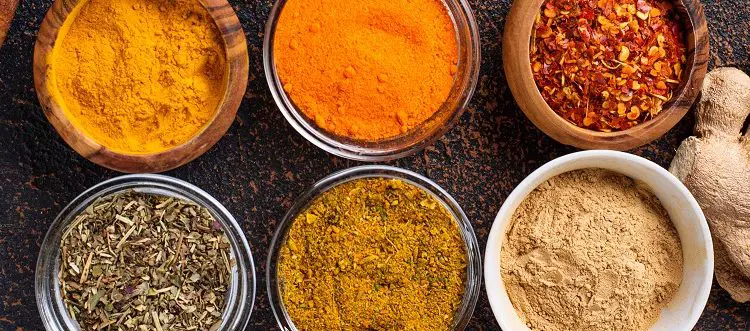When it comes to Asian cuisine, the flavors are always spot on. But did you know that behind the delicious taste are some of the most powerful spices in the world with tremendous health benefits? Here are five of the most popular Asian spices that you should add to your diet today!
Ginger
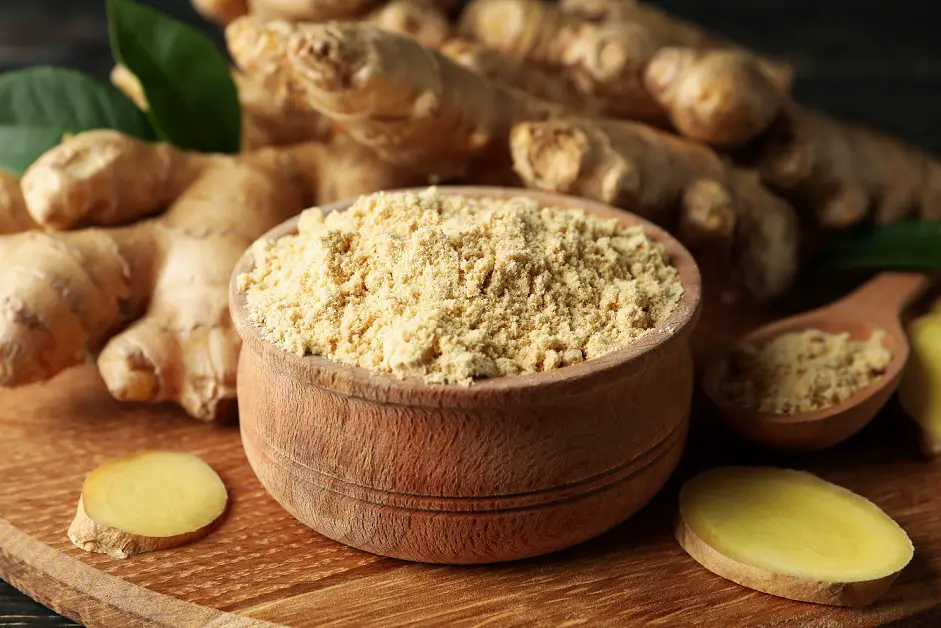
This ubiquitous ingredient in Asian cooking is a marvel of anti-inflammatory and antioxidant properties. It can help ease nausea, relieve pain and swelling, and improve digestive health. Studies have shown that ginger can positively impact heart health and may help lower blood pressure and cholesterol levels (1).
Turmeric
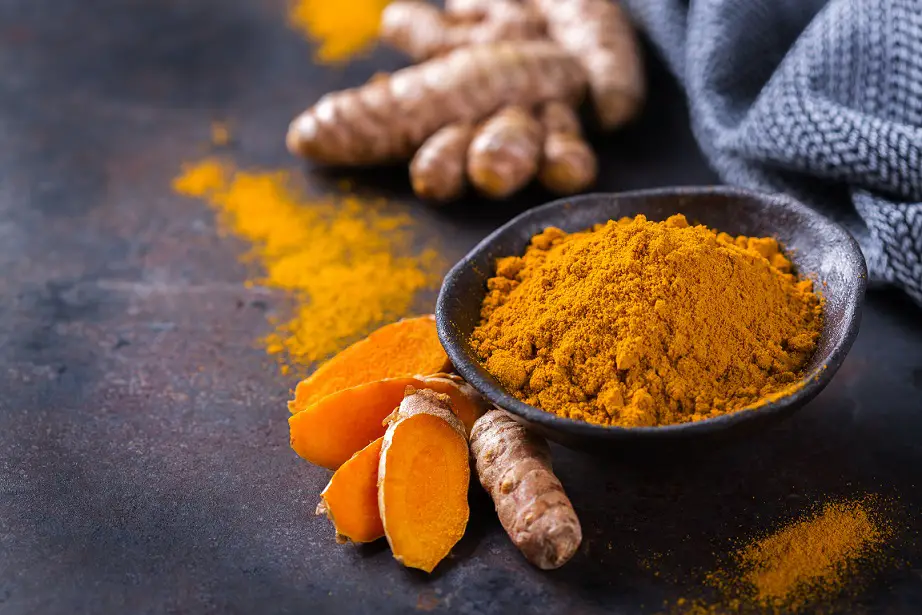
This bright yellow spice widely used in Indian and Middle Eastern cooking is rich in curcumin, a compound with strong anti-inflammatory and antioxidant properties. Research has shown that turmeric may improve brain health and memory function (2). It may also help reduce the risk of heart disease and certain types of cancer (3).
Cinnamon
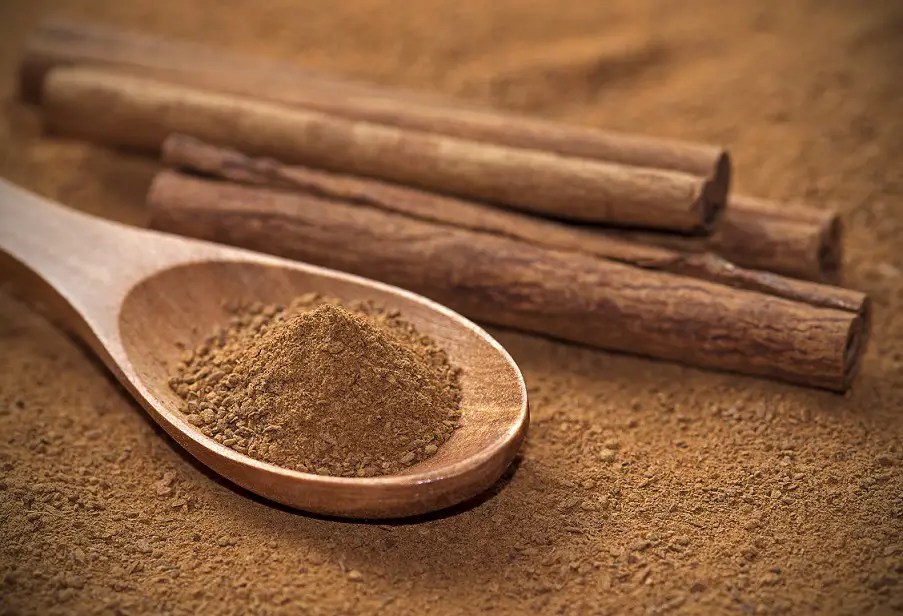
This sweet and warming spice commonly used in Asian desserts and drinks is high in antioxidants and anti-inflammatory compounds. Studies have shown that cinnamon may improve insulin sensitivity and regulate blood sugar levels, making it a good choice for people with diabetes (4). Cinnamon has also been shown to positively impact heart health and may help lower cholesterol levels (5).
Saffron
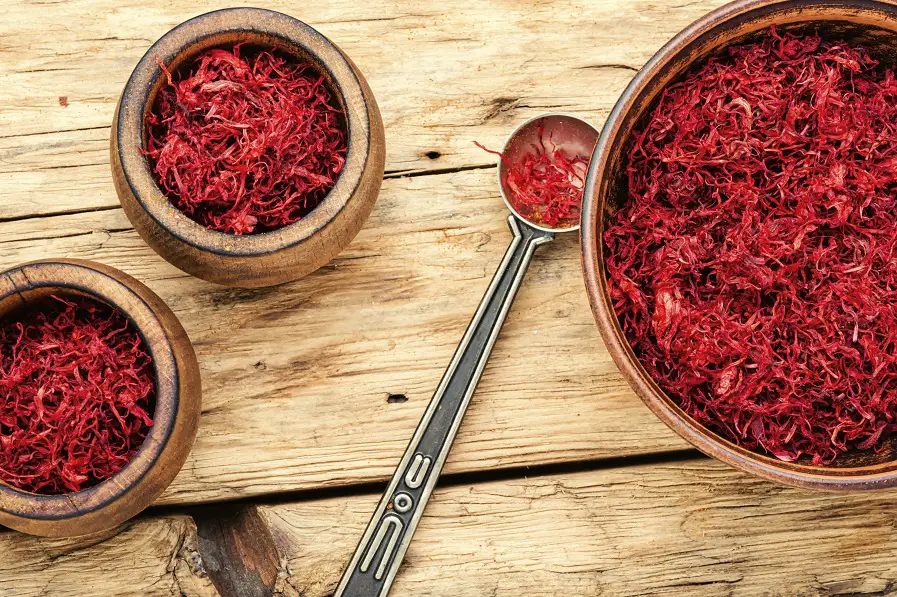
Saffron, derived from the flowers of the Crocus sativus plant, is one of the most expensive spices in the world. However, its health benefits make it worth it! Saffron is rich in antioxidants and anti-inflammatory compounds and has been linked to improved mental health, reducing anxiety, depression, and stress (6). Saffron has also been linked to improved heart health and may help lower blood pressure and cholesterol levels (7).
Star Anise
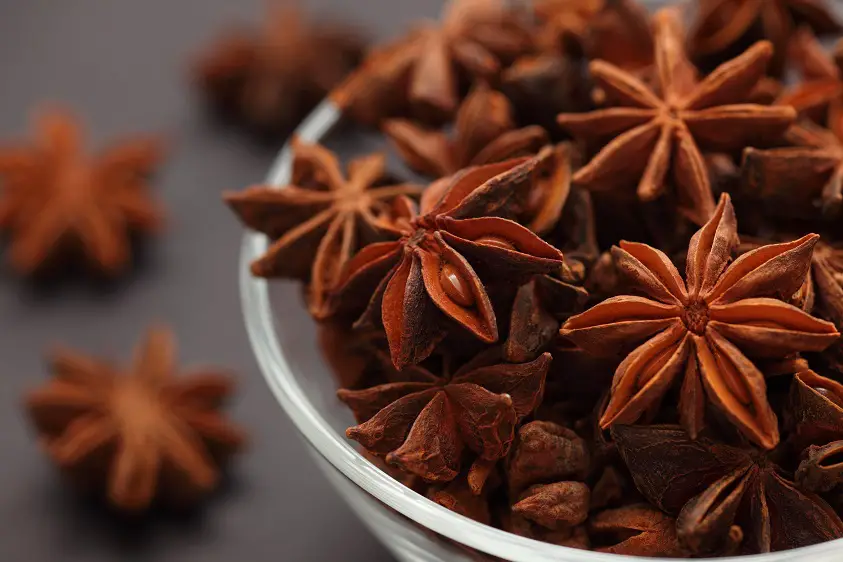
This spice, commonly used in Asian cooking, has a sweet licorice-like flavor and is high in antioxidants and anti-inflammatory properties. Star anise has been linked to improved respiratory health and may reduce symptoms of coughs, colds, and flu (8). It has also been linked to improved digestive health and may ease symptoms of indigestion and bloating (9).
Adding these five Asian spices into your diet can offer a range of health benefits, from reducing inflammation and improving heart health to boosting brain function and easing digestive discomfort. Whether you use them in cooking or add them to teas and smoothies, these spices are a delicious and nutritious way to improve your overall health and well-being.
- Rahmani, A.H., et al. “The effect of ginger on blood pressure and lipids: A systematic review and meta-analysis of randomized controlled trials.” Journal of the Academy of Nutrition and Dietetics, vol. 113, no. 12, 2013, pp. 1675-1686.
- López, V., et al. “Turmeric, the Golden Spice: From Traditional Medicine to Modern Medicine.” Molecules, vol. 24, no. 2, 2019, pp. 254-267.
- Anand, P., et al. “Bioavailability of Curcumin: Problems and Promises.” Molecular Pharmaceutics, vol. 4, no. 6, 2007, pp. 807-818.
- Al-Kuran, O., et al. “The effect of cinnamon supplementation on glycemic status, lipid profile, and body composition in type 2 diabetic patients.” Journal of Medicinal Food, vol. 18, no. 1, 2015, pp. 53-59.
- Mang, B., et al. “Effects of oral cinnamon supplementation on antioxidant status, cytokine levels, and clinical outcomes in type 2 diabetic patients.” The American Journal of Clinical Nutrition, vol. 91, no. 4, 2010, pp. 1059-1069.
- Naeimi, F., et al. “The effect of saffron supplementation on mental health, cognition and oxidative stress markers in healthy adults: A randomized, double-blind, placebo-controlled trial.” Journal of Integrative Medicine, vol. 15, no. 5, 2017, pp. 381-389.
- Agha-Hosseini, M., et al. “Crocus sativus L. (saffron) in the treatment of premenstrual syndrome: A double-blind, randomised and placebo-controlled trial.” BJOG: An International Journal of Obstetrics & Gynaecology, vol. 115, no. 4, 2008, pp. 515-519.
- Alizadeh-Navaei, R., et al. “The effects of star anise on lung function and respiratory symptoms in patients with bronchial asthma.” Phytotherapy Research, vol. 26, no. 9, 2012, pp. 1393-1397.
- Jafari, S., et al. “The effect of star anise on functional dyspepsia and quality of life in patients with functional dyspepsia.” Journal of Research in Medical Sciences, vol. 20, no. 1, 2015, pp. 20-24.

